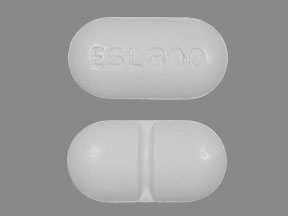Aptiom Disease Interactions
There are 5 disease interactions with Aptiom (eslicarbazepine).
Anticonvulsants (applies to Aptiom) depression
Major Potential Hazard, Moderate plausibility.
Antiepileptic drugs can increase depression and suicidal thoughts or behaviors in patients receiving these drugs for any indication. Patients should be monitored for the emergence or worsening of depression, suicidal thoughts and unusual changes in mood or behavior. Caregivers and family should be alert for the emergence or worsening of symptoms. Behaviors of concern should be reported immediately to the healthcare providers.
Anticonvulsants (applies to Aptiom) liver disease
Major Potential Hazard, Moderate plausibility.
Most anticonvulsants are primarily metabolized by the liver. Metabolic activity may be decreased in patients with liver disease, resulting in elevated drug levels and increased risk of toxicity. Therapy with anticonvulsants should be administered cautiously in patients with mild and moderate liver impairment. Therapy with these drugs is mostly not recommended in patients with severe liver impairment. Caution is also advised when treating patients with a history of liver disease, since the use of some anticonvulsants has been associated with hepatotoxicity. Baseline and periodic evaluation of liver function is recommended. Therapy should be discontinued and not readministered if evidence of liver damage is observed and felt to be drug-related.
Anticonvulsants (applies to Aptiom) renal dysfunction
Major Potential Hazard, Moderate plausibility.
Most anticonvulsants are primarily excreted by the kidney. The plasma clearance may be decreased and the half-life prolonged in patients with impaired renal function. Therapy with anticonvulsants should be administered cautiously in patients with significant renal dysfunction. In most cases it is recommended to adjust the dosage in patients with CrCl <50 mL/min to half the usual starting dose and then increase slowly to achieve the desired clinical response. The renal function should be monitored regularly in patients receiving therapy.
Anticonvulsants (applies to Aptiom) hyponatremia
Moderate Potential Hazard, Moderate plausibility. Applicable conditions: Hypothyroidism, Congestive Heart Failure, Adrenal Insufficiency, SIADH
Some anticonvulsants can cause clinically significant hyponatremia (Na < 125 mmol/L). Therapy with these drugs should be administered cautiously in patients with conditions predisposing to hyponatremia, such as SIADH, use of diuretics or drugs associated with inappropriate antidiuretic hormone secretion, adrenal insufficiency, hypothyroidism, primary polydipsia, and edema (e.g., due to liver cirrhosis, congestive heart failure, or nephrotic syndrome). Serum sodium levels should be monitored during maintenance therapy, and patients should be monitored for signs and symptoms possibly indicating hyponatremia such as nausea, malaise, headache, lethargy, confusion, obtundation, and increase in seizure frequency or severity. If hyponatremia occurs, conservative measures such as fluid restriction, a reduction in dosage, or discontinuation of therapy will usually suffice.
Eslicarbazepine (applies to Aptiom) thyroid function tests
Moderate Potential Hazard, Moderate plausibility. Applicable conditions: Thyroid Disease
Dose-dependant decreases in thyroid function tests (serum T3 and T4) have been observed in patients taking eslicarbazepine. These changes were not associated with other abnormal thyroid function tests suggesting hypothyroidism. Abnormal thyroid function should be evaluated and clinicians should be cognizant of these effects when prescribing or administering eslicarbazepine therapy to patients with thyroid disorders.
Switch to professional interaction data
Aptiom drug interactions
There are 545 drug interactions with Aptiom (eslicarbazepine).
Aptiom alcohol/food interactions
There is 1 alcohol/food interaction with Aptiom (eslicarbazepine).
More about Aptiom (eslicarbazepine)
- Aptiom consumer information
- Check interactions
- Compare alternatives
- Pricing & coupons
- Reviews (40)
- Drug images
- Side effects
- Dosage information
- During pregnancy
- Generic availability
- FDA approval history
- Drug class: dibenzazepine anticonvulsants
- Breastfeeding
- En español
Related treatment guides
Drug Interaction Classification
| Highly clinically significant. Avoid combinations; the risk of the interaction outweighs the benefit. | |
| Moderately clinically significant. Usually avoid combinations; use it only under special circumstances. | |
| Minimally clinically significant. Minimize risk; assess risk and consider an alternative drug, take steps to circumvent the interaction risk and/or institute a monitoring plan. | |
| No interaction information available. |
Further information
Always consult your healthcare provider to ensure the information displayed on this page applies to your personal circumstances.


